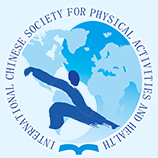Document Type
Abstract
Keywords
experimental study, traditional old games, fundamental motor skills
Publication Date
2-2024
Abstract
Purpose: Fundamental Motor Skills as the "cornerstone" of children's healthy growth, its firmness determines children's future development. However, with the progress of science and technology and the convenience of modern life, the physical activity level of children has decreased significantly, and the development of basic motor skills has increased rapidly. Therefore, in October 2020, it was clearly proposed to gradually improve the school physical education teaching model of "health knowledge + basic sports skills + special sports skills". At the same time, as the wisdom crystallization of human development, traditional old games are increasingly replaced by the ever-changing electronic games and gradually fade out of human's vision. The inheritance of excellent traditional sports culture is in urgent need of improvement. Based on this, standing at the intersection of two hundred years of history, this study takes the opportunity of the introduction of excellent traditional sports culture into the campus, fully explores the action education value of traditional old games, integrates the design and implementation of online sports intervention of traditional old games, deeply discusses the influence and effect of traditional old games on basic sports skills, and tries to expand the ideas and perspectives of the inheritance of excellent traditional sports culture. To effectively promote the healthy growth of children to provide empirical reference. Methods: In this study, literature, experiment, interview, mathematical statistics, and other research methods were used to design and improve the teaching design of traditional games, and the first-grade students at a primary school in Shenzhen were selected for experimental research. Among them, 24 students (11 boys and 13 girls) in the experimental class used traditional old games for experimental intervention, while the control class (11 boys and 13 girls) conducted routine teaching arrangements. The experiment lasted for 4 weeks, twice a week for 30 minutes each time. The Gross Motor Development Scale III (TGMD-3) was used before and after the experiment to evaluate children's basic motor skill development, in order to verify the effectiveness of traditional games in improving children's basic motor ability development. Results: After the experiment, the overall level of basic motor skills (t=3.091, p=0.000 < 0.01), mobile skills (t=4.694, p=0.000 < 0.05) and mobile skills of female students (t=6.502, p=0.000 < 0.05) were significantly different between the experimental class and the control class. Conclusion: Through reasonable design and creation of the five principles of fun, feasible, antagonistic, educational, and changeable traditional games, can effectively improve the basic motor skills of 7-8 years old children; The intervention was suitable for the sensitive period of children's motor development, and the traditional online games had the most obvious effect on improving the mobile skills of 7-8 years old children. Influenced by social role awareness and growth sequence, there are significant gender differences in the influence of traditional old games on basic motor skills of children aged 7-8 years, and the development of motor skills of girls is significantly better than that of boys.
DOI
https://doi.org/10.18122/ijpah.3.1.8.boisestate
Recommended Citation
Mao, Qian; Wang, Xiaozan; and Xu, Qinping
(2024)
"A37: An Experimental Study on the Effect of Traditional Old Games on Fundamental Motor Skills of Children Aged 7-8,"
International Journal of Physical Activity and Health: Vol. 3:
Iss.
1, Article 8.
DOI: https://doi.org/10.18122/ijpah.3.1.8.boisestate
Available at:
https://scholarworks.boisestate.edu/ijpah/vol3/iss1/8
Included in
Exercise Science Commons, Health and Physical Education Commons, Public Health Commons, Sports Studies Commons



